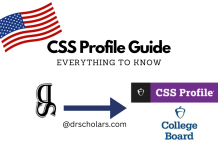Here is a detailed Beginners guide for students with all the tips & Techniques to score the highest in the IELTS. (International English language testing system)
This guide will explain
2.IELTS test validity? / How long is IELTS valid?
3.How many times can you take IELTS?
4.Why IELTS is important in universities?
10.How to score the highest marks in IELTS?
Here is a detailed Beginners guide for TOFEL.
What is the IELTS test?
The abbreviation of IELTS is International English Language Test System.
IELTS test is conducted to check the ability of a person that how well he has command over the English language.
Through this test, you can fulfill your desire of living in foreign countries.
Through IELTS you can prove that you can study abroad at MS level or high and also prove that you can understand English and can also continue your career in foreign countries.
Q: IELTS test validity? / How long is IELTS valid?
Three years.
Remember The IELTS is valid up to 3 years from the date of the exam, not The result date.
Q: How many times can you take IELTS?
No limit. You can give as much as you want. However, for the best score, start your preparation at least two months before.
Why IELTS is important in universities?
IELTS is accepted by Australian, British, Canadian, European, Irish & New Zealand academic institutions and by various professional organizations across the world.
IELTS test is important in universities because it shows that if you are eligible to get admission in university by testing if you can understand and speak the English language fluently.
Some universities give admission on the basis of IELTS scores.
While in other universities, IELTS is not important & students can get admission with an “English proficiency certificate”, However, you will still need an IELTS certificate because it’s a compulsory requirement of few embassies. (Specifically in case of Pakistan).
IELTS is the only Secure English Language Test approved by UK Visas and Immigration (UKVI) for visa customers applying both outside and inside the UK.
IELTS Score System:
The total score of the IELTS test is 40 and if you get 40 then your band will be 9.
Scoring in IELTS depends on the level of your English.
To get maximum marks you have to improve your all four skills, Reading, Writing, Listening & Speaking, in such a way that you make no spelling, grammar or punctuation mistakes.
If you are a fast learner then you don’t need a teacher to improve you. You just have to be honest with yourself to acknowledge your mistakes and try to overcome them through constant practice.
you will improve your level of English in a short period of time.
There are four modules of this test:
- Reading
- Writing
- Listening
- Speaking
How can you improve these things? What are the books for this test? Where can you find the online course?
These questions come to your mind but don’t worry you can find course materials and also find courses online here.
After getting the course material all you have to do, is to focus & practice continuously.
Here are few tips for the four mentioned modules.
READING:
Reading consists of three text passages & has 40 questions in total. you have to read the passages carefully & answer the questions or label the diagram or complete the sentences or fill the gaps.
Try reading different paragraphs and explore new words and check if you are reading accurately and if your pronunciation is correct?
If your pronunciation is not correct then you can find help here.
On this site, you can write your new word and listen to its pronunciation and you can correct it through this site.
Tips:
- Unlike the listening test, Time is the biggest enemy here, divide it carefully for passages. use 15 min-20 min-25min rule. because the passages get difficult with time. Don’t divide the time equally for all passages.
- Before solving your test read the given question carefully.
- Don’t read the paragraph first before reading the task.
- Solve questions that are easy to solve at first to manage time.
- Scan the passage, make a map, extract the core idea of the paragraph.
- Carefully select the MCQs answer because once you select one then you can’t change your answer.
WRITING:
Writing usually consists of two tasks.
1. You have to write a report of 150 words about a diagram or figure.
2. you have to write an essay of 250 words, about a given topic, to justify an opinion or give a solution to some problem.
Try to write daily about your day by using words that you learn every day.
You may write about anything but the main thing that matters is your mistakes.
Check if you have done spelling or grammatical mistakes and if you do then keep that mistake in mind and try to avoid it.
Also when you listen to anyone who speaks in English, try to understand it and check if you know all the spelling of words, if don’t then try to search for it.
Tips:
- Never ever copy the task instructions, it’s forbidden. you can rephrase it, though.
- Length is important, so if you cant reach the limit try to be closer.
- While describing the figure never use your opinions, also use synonyms, don’t copy.
- While writing an essay avoid bullets. your essay should include, Introduction, Body & Conclusion.
- Time is the main thing that you need to manage in this section, Practice writing example essays.
- Try to write according to English grammar not according to spoken English.
LISTENING:
Listening consists of 4 sections, that include 38-40 questions.
You have to sharpen your listening skills because the tape is not paused at any time & you will hear the audio only once.
You can practice by watching different documentaries & podcasts in English and try to understand their concepts & conversations.
It’s best in the beginning that you watch it with subtitles, later with practice, you will be sharp enough to understand everything without subtitles.
you can improve your listening skills. You can find exercise here.
Tips:
- Normally before every audio tape, you will have 20 sec to examine specific questions. Try to underline the keywords, (numbers, locations, opening hours, names, etc) it always contain the core idea.
- You can hear the recording only one time, so be more focused on listening to it & practice.
- You have to practice doing more than one task at a time because you can never remember the recording so you have to write and listen at a time.
- You should also take care of spelling while writing.
- Try not to distract yourself otherwise because the audiotape will use different voices of different ages & gender. concentration & focus is very important in listening, which will come solely with constant practice.
SPEAKING:
In this module, your skills of speaking English are tested that how well and accurately you can speak English.
They will ask you some simple personal questions about your studies, parents, siblings in the beginning.
Try not to answer “yes or No”.
Instead, make sentences & answer in detail.
After the interview, the examiner will hand you a card with 3-4 questions on it, you will have 1 minute to prepare a short speech.
A sheet will be given so that you can make notes.
Make sure you practice enough to answer efficiently.
You must make a daily ritual to talk to your friend for one hour every day in English about rhetorical daily topics.
you can find friends online on skype or join some social media group, where people are looking for like-minded people to help each other.
This will help boost up your confidence in speaking.
These are some steps you need to take for getting maximum marks.
But then again you need to work hard & take IELTS seriously.
Tips:
- You have to take care of your pronunciation while speaking.
- This test is not a formally speaking test.
- Your examiner will give you marks according to your speaking skills.
- Your grammar & vocabulary should be accurate.
- Try to record your speaking conversations & examine them later to improve yourself.
How to score the highest marks in IELTS?
Getting maximum marks on the IELTS test can be difficult but if you are determined enough & following a consistent routine & plan, you can do it.
Here are a few tips.
- Make a schedule for preparation:
First, you need to make a schedule for your studies and follow it strictly. Do breaks in between, take rest & give it time. Make a calculated approach towards your preparation.
- Practice to make yourself better:
Can’t stress this point more. Practice, practice, practice.
No matter how many blogs you read or movies you watched or academies you joined if you arent giving it time & practicing or implementing it personally, it will blow back very hard.
- Keep track of syllabus:
Try to make your preparation according to the syllabus because it’ll help you to give an idea about how much time you required to complete your preparation or how fast you should cover your syllabus.
- Try to overview samples:
Check examples of IELTS questions and solve them daily. Score yourself, Be a strict teacher.
- Practice to solve samples in time:
No matter how good you are but if you don’t know Time management, you will fail miserably. Practice is the only way out.
- Visit official sites regularly
Try to visit the official site of IELTS for proper information about it. It will also help you to know about rules and regulations & updated course material.
- Improve your mistakes:
Mistakes should be minimum if you want to get maximum marks. Don’t ignore it, Overcome it with time. Also, try not to leave any question unanswered because you can get some marks of writing something then leave it and get nothing.











